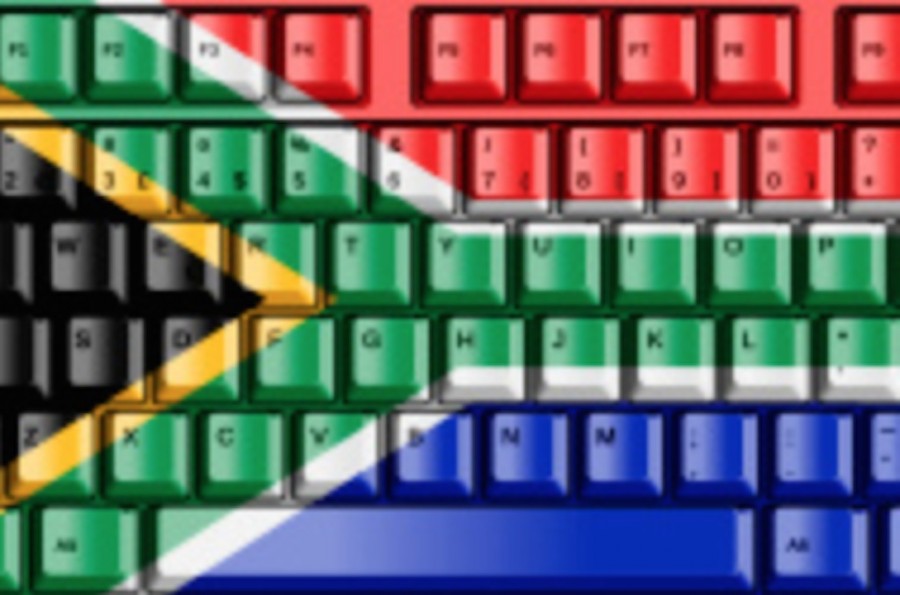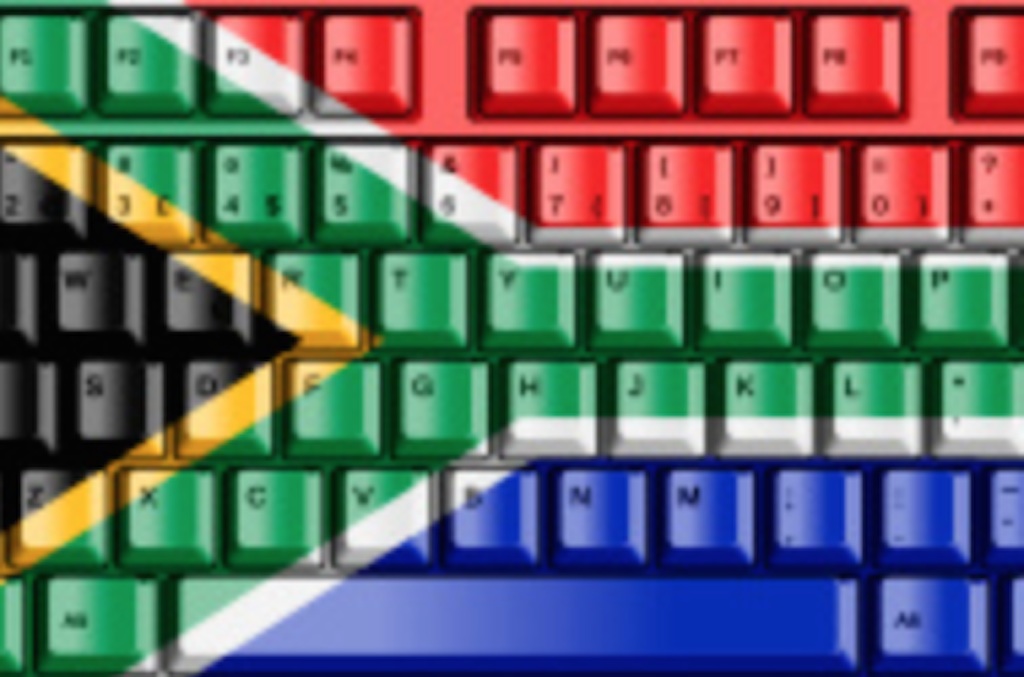
Not Another African Tech Article
The great continent of Africa seems to be the flavour of the month. As the world wakes up to its potential, I can’t help but cringe each time an “African tech” article is published on a popular medium like TechCrunch (the magazine where this article first appeared). The lack of data and “exotic charm” of […]

The great continent of Africa seems to be the flavour of the month. As the world wakes up to its potential, I can’t help but cringe each time an “African tech” article is published on a popular medium like TechCrunch (the magazine where this article first appeared).

The lack of data and “exotic charm” of Africa makes it an easy target for baseless, heavily flawed or downright ridiculous content. This benefits no one, as it has the effect of painting a false picture about the continent and each of its 54 diverse states. Everyone from potential investors to collaborators is made more ignorant by most articles.
Nik Milanovic’s recent contribution is a case in point. His intention of wanting to shed “additional light” about tech’s new El Dorado was a major disservice, in my opinion. Its failure, like many of its ilk, is rooted in the juxtaposition, or rather imposition, of Africa and China. A keyword search reveals he used the word “China” 34 times in that article. A number of comments at the bottom of it go on to accuse him of originally intending to write about China!
As a kid born and bred on the continent, it bothered me for a while that amidst all the noise about great fortunes beneath and above, the continent as a whole wasn’t in a better place. I then dedicated a great deal of time to read and understand more about the continent, as well as technology as a conduit for change.
Even then, Africa’s complexity became clear to me. Growing up in a hyper-inflation-riddled Zimbabwe made it all the more interesting, as the nation rapidly experienced three of the four African economic clusters as defined by McKinsey. Part of this experience is what inspired Logan Green to embark on the venture we know today as Lyft. If we are to understand African tech better, it’s important to understand the continent’s general evolution — technology doesn’t operate in a silo.
The Cold War Impact
When most African nations got independence in the 1960s, they were thrust onto a dangerous board of chess. Choosing between the West on one side and USSR on the other poisoned budding governance structures on the continent. Africa’s worst dictators — Idi Amin in Uganda, infamous as the last King of Scotland, and Mobutu in the Congo — also came to power with the active participation of friends like the CIA.
Conversely, promising early leaders like Lumumba were overthrown in the same manner. The game at the time was about spheres of influence and little else. Weak internal structures were further diluted with aggressive external pressures. Global corporations also latched onto this, dipping their hands in coups and other exploitative activities — something that still happens to this day.
Therefore, immediate post-independence Africa was nothing less than an epic screw up, built above a future sinkhole. Basic information and communications technology on the continent was almost nonexistent. A case in point is that in the early 1980s, Nigeria, as Africa’s biggest nation, had fewer than 300,000 fixed telephone lines for a population exceeding 100 million.
As the Cold War ended with the collapse of the USSR in the early 1990s, the failure of African states to get their act together became more apparent. The focus shifted from external and corruptive influences to internal developmental pressures. No longer could a dictator get away with the fact that he was aligned with the governments and ideology of the USSR, USA, France, Britain or other Cold War and/or post-colonial actors.
The tug of war ceased and the international community collectively stared at Africa, writing it off as a failed continent by the beginning of the 21st century. Countries like Malaysia and Singapore were compared with African peers like Ghana and Ivory Coast. All four had obtained independence within three years of one another, yet the Southeast Asian tigers were roaring.
When the emperor was revealed to have no clothes, nations like Tanzania did away with socialism and increasingly gravitated toward free-market fundamentals. This laid a sound foundation for entrepreneurship to flourish. The rise of mobile telephony from the late 1990s and into the 21st century happened at just the right time.
Entrepreneurs like Miko Rwayitare, Strive Masiyiwa and Mo Ibrahim took the lead by building the continent’s first mobile networks. Strive Masiyiwa did so by taking the Zimbabwe government to court in a legendary five-year legal battle, sacrificing his house and entire savings in the process. By 2005, Mo Ibrahim had sold Celtel International to MTC for $3.3 billion, crowning what is arguably Africa’s first tech unicorn and turning into millionaires nearly 100 people from the founding team. It succeeded with the participation of U.S. venture capitalists like Bessemer Venture Partners.
Ibrahim now runs a governance initiative that promotes and rewards good governance in Africa. Today, more than 600 million Africans have a cell phone, giving rise to empowering innovation like the African-led global mobile money phenomenon.
The Future of Africa is African
By continuously presenting Africa as an either/or, narratives such as that espoused by Milanovic are crippling and shortsighted. Beyond being misguided, what they perhaps unintentionally do is force the continent into another tug of war, one in which “the West” needs to race to Africa before “the East” gobbles it up. The irony of this school of thought is that no Chinese Internet company has a significant presence in Africa.
In fact, the flip side is true, as Naspers of South Africa was an early investor in Tencent of China. It remains the largest shareholder in the world’s fifth biggest Internet company. Naspers turned a $32 million investment into a $58 billion equity stake. So much for China gobbling up Africa! Chinese investment in the continent’s nascent tech scene would be welcome, just as investment from the rest of the world is.
This is a new Africa, defined by an urgency to come up with entrepreneurial solutions to our challenges and embrace our opportunities. Homegrown infrastructure players like SEACOM, MainOne and Liquid Telecom get little credit for the enabling role they’ve played. Before 2010, Africa’s core means of Internet connectivity was through outdated satellite technology.
These three companies, and others in their league, silently laid the infrastructure that underpins Africa’s connectivity boom. Mature startups like Andela, IROKOtv, One Africa Media and early stage ones like my own are only emerging around this. Without their toil, there would be no nascent tech ecosystems to speak of.
Whilst politics has generally improved from the Cold War era, it still has a long way to go — just like other continents have had to do during their first 50 years. We’re not waiting on politics to take the lead, but rather being the change we want to see. The mobile boom as Africa’s first mass contact with ICTs, was entrepreneur-led.
According to Mo Ibrahim, GSM licenses in Africa were initially scorned by global telcos to the extent that some governments began offering them for free. Today they’re worth more than gold, as telcos are paying up to $200 million for them. Conditions are becoming sufficient enough to enable entrepreneurship to take the lead. The type of entrepreneurship that made the U.S. the world’s greatest nation.
As a young African, I believe that governance is becoming a bigger focal point for our governments, even notorious ones. Unlike before, external pressures are not the dominant influence. An informed, frustrated and ambitious youth bulge, from which I hail, is.
In a post titled The Future Is African, Canadian entrepreneur Barrett Nash basically authored what I concluded to be a positive and spirited but highly patronizing article. In it, he calls on “the world’s best and brightest” not to “build the next WhatsApp in America” but rather “come to Africa.” Instead of enlarging the opportunity to reveal a world in which Africans are taking to WhatsApp by the millions, for example, his simplification was flawed in its quest to hype an imaginary scramble for Africa.
I have the added context of knowing Barrett, as we worked from the same office block in Kigali, Rwanda. Although I initially dismissed it, his article repeatedly popped up in numerous conversations I had with people at the coalface of African tech. Many felt insulted by its glaring innuendos, extending the harmful misconceptions that Africans need others to solve their own challenges.
It makes no sense that out of all these recent Africa articles, almost none are from actual Africans, the people naturally at the front line of Africa’s economic, social and tech scenes. A large part of the problem lies with us Africans simply not leading the discussion; how many have actually attempted to publish a post sharing their sentiments?
With that said, just because anyone with a head on their shoulders can come up with snappy headlines like “African Boom,” “African Gold Rush” or “Scramble For Africa” doesn’t make their reasoning legitimate — it actually continues to dumb down Africa as a monolithic and internally lethargic structure.
In the midst of a commodity downturn, it’s therefore not surprising to come across such abruptly pessimistic but revealing articles like Africa’s Boom Is Over. These are not called frontier markets for nothing. Uber’s recent experiences in Nigeria are a drop in the ocean of challenges we navigate daily across Africa, that’s the reality.
There shouldn’t be a tug of war this time around. Extending perceptions of such only advances exploitative tendencies that have contributed toward the challenges in Africa. Continued China or “saviour” inferences are a wasted opportunity to build meaningful, wide-reaching and lasting value. Africans are indeed rising, although not at the supersonic pace at which Africa is supposedly rising.
This article first appeared in TechCrunch and is republished with approval. Mutambo is the found of esaja.com.